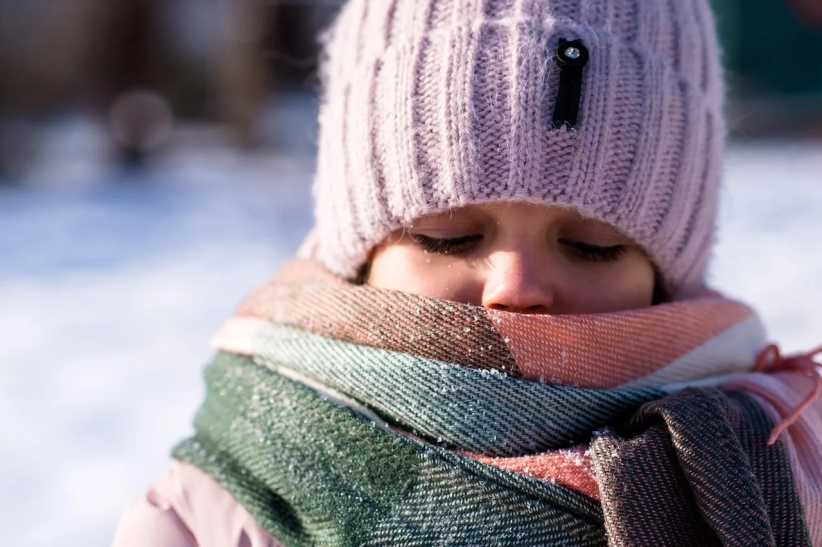
Expert Tips for Winter Skin Care
The winter can be hard, especially on your skin. We all know that our skin gets especially dry during the winter, which means it’s important to give our skin some extra love in the winter.
If you’ve been looking to step up your winter skin care routine but don’t know where to start, we’ve got you covered. We sat down with Dr. Helen He, dermatologist in the Mount Sinai Health system, to ask about how parents can take extra care of their skin during the winter.
Psst… Here are 26 Things to Do with Kids on Long Island!
Why is the winter particularly harsh on people’s skin?
In the winter, the air becomes drier with ambient decreased humidity and moisture, both outdoors and indoors especially with heater use that dries out the air even further.
These changes, as well as further irritation from other environmental insults, like windburn, strip the moisture from the skin and weaken the skin barrier so that it becomes more prone to damage.
As a result, the skin may become dry, irritated, and even have painful cracks, fissures, and peeling, especially in patients who have sensitive skin, like those with eczema.
What are some of the biggest challenges people run into in terms of skin care in the winter?
Because the cold, dry winter air can lead to dry, cracked skin, it is important to moisturize frequently, but maintaining a consistent skincare regimen can be difficult for people with busy lifestyles.
It’s also tempting to take long hot showers especially during wintertime, but that can dry out the skin even more.
What steps can people take to give their skin some extra love in the winter?
While it is not necessary to dramatically change your skincare routine during the winter, a few simple lifestyle changes may be helpful for giving the skin barrier some extra protection from the harsh effects of winter.
Since prolonged showering with hot water will strip away the skin’s natural lipids/oils, I recommend reducing the frequency and length of time bathing/showering during the winter, and making sure the water is not too hot.
Right after taking that shower, while the skin is still damp, that is the time to put on a thick moisturizer cream to prevent water loss from the skin. Your room will also get dry at night, so using a humidifier at bedtime could also help to prevent water loss and keep the skin hydrated.
Also remember to take care of the lips, which get really chapped during the winter. To avoid cracked lips, make sure to frequently apply lip balm or petroleum jelly.
When looking for a winter moisturizer, what are some important things to look for?
In the winter, a thicker rich moisturizer cream rather than a thin lotion will be more protective to the skin. Look for creams that contain ceramides, which are lipids that naturally occur in the skin and will help repair the skin barrier to prevent water loss and lock in moisture.
Also look for creams that contain a humectant like glycerin, hyaluronic acid, or urea that attracts water to the skin and thus keeps the skin hydrated. During the daytime, make sure that your face moisturizer also contains SPF.
If you have sensitive skin or eczema, make sure to look for a moisturizer that is fragrance-free. If you have oily or acne-prone skin, look for non-comedogenic products and avoid occlusives like petroleum jelly in your problem areas.
The skin on your hands is just as important as the skin on your face. How can people protect the skin on their hands in the winter?
While we are always doing things with our hands year-round, our hands need extra protection during the winter months, since we wash our hands and use hand sanitizers more frequently during the flu and cold season.
As with other parts of the skin, frequent washing of the hands, especially with harsh soaps, can leave the hands very dry, and susceptible to painful cracks and fissures. Make sure to use a gentle/mild non-foaming soap and avoid washing with water that is too hot.
After patting the hands dry, apply a thick moisturizing cream or even petroleum jelly or Vaseline if you can tolerate the greasiness.
One trick for patients who get really dry hands in the winter is after showering, while the hands are still damp, apply petroleum to the hands and put on cotton gloves overnight or as for as long as you can tolerate. This is especially effective for keeping the hands moisturized during winter.
What lifestyle changes can people consider making year-round to help their skin?
While winter is particularly harsh on the skin, it is helpful to build good skincare habits all year-round.
While moisturizing is especially important during the cold winter months, it is important to protect the skin barrier year-round as well.
Making sure to moisturize daily throughout the year will help it become a habit so that it will be easier to keep the habit up during the winter, when moisturizing is even more important.
One of the most critical lifestyle changes is sun protection. Because the ultraviolet rays that can lead to skin cancers and photoaging are present year-round, it is important to use a broad-spectrum sunscreen with SPF of at least 30 on all sun-exposed skin year-round, even in the winter.
Remember that the sunscreen needs to be reapplied every two hours, and to practice other sun-safe habits, like wearing sunglasses and protective clothing and seek shade whenever possible.
For busy parents, things like a skin care routine can take a backseat. How can parents take steps to prioritize taking care of themselves and their skin?
We know that for busy parents, maintaining a regular skin care routine can be challenging, but we want to make sure that parents who are working hard to take care of their children are also taking care of themselves.
Gentle products like mild cleanser, moisturizer, and sunscreen are recommended for both adults and kids, so when parents are applying skincare products on their kids, that can be a good time to apply these on themselves at the same time.
It is also helpful to throw some convenient products in your bag so that you have it on the go, such as a fragrance-free hand cream, lip balm or petroleum jelly, and a moisturizer with sunscreen (2-in-1, which saves time!).













